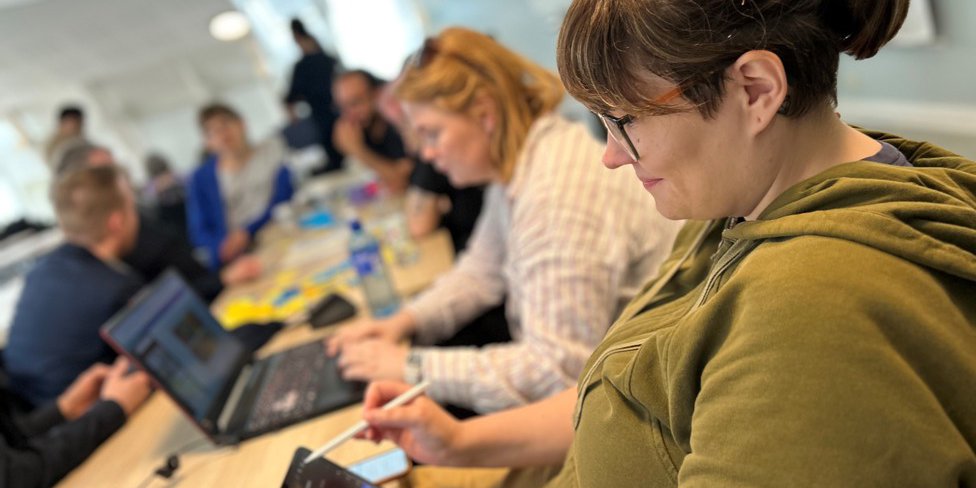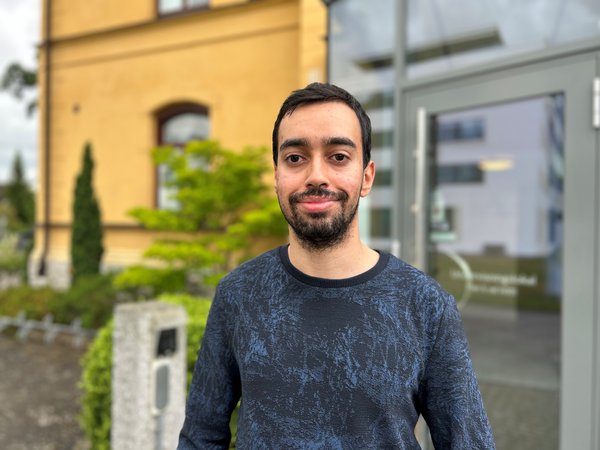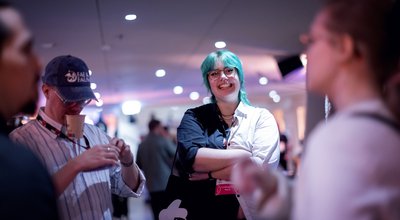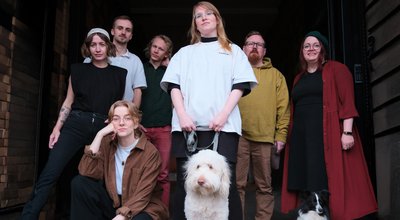International Game Jam in Skövde Created a More Sustainable Games Industry

An international game jam recently took place at the University of Skövde. Students and alumni from six different universities in Northern Europe came together to make games while learning about and discussing sustainability in relation to game development and the games industry.
The games industry, like all other large industries, leaves behind a large climate footprint. If the game developers of the future work more consciously around their own environmental impact, that footprint can be smaller. For that reason, around thirty game development students from six different universities in Northern Europe gathered on June 7-11 for a game jam at the University of Skövde. The aim was to explore ways to integrate a sustainability focus in game development education and contribute to a future games industry with better awareness of sustainability.
“By sustainability, we also mean social and cultural sustainability. A games industry that does not work actively with these types of sustainability issues can easily fail in areas such as gender equality and work culture, which is unfortunately not uncommon. An advantage of games as a form of culture is that it has great potential to highlight important topics and reach a wide audience,” said Victor Bankler, Lecturer in Informatics at the University of Skövde and Project Leader for this year's game jam.
Therapeutic Process for Those with Climate Anxiety
The workshop has been arranged twice before, in Tallinn and Copenhagen, and was now held for the third time in its current form. The participants learned about different aspects of sustainability and the challenges the industry is facing. Then, in groups, they researched a topic linked to sustainability and created game prototypes that explored the topic they chose to focus on. In this way, the participants had the opportunity to express themselves about some aspect of sustainability through creative work.
“It has proven to be quite a therapeutic process for those who, for example, have climate anxiety or feel frustrated in the face of other problems that they feel they have no power to solve on their own, such as a lack of gender equality in workplaces,” said Victor Bankler.
The participants came not only from the University of Skövde but also from Uppsala University – Campus Gotland, the IT University in Copenhagen, the University of Turku, the University of Iceland, and the University of Tallinn.
Rising Sea Levels and Cooperation
One participant in this year's game jam was Nedim Ogul from Cyprus, who is studying the Master's Programme Serious Games at the University of Skövde. His group chose to focus on the environmental issue and create a game about rising sea levels. One of the participants in the group comes from the small coastal town of Stokkseyri in Iceland, and the group based the events of the game on that town.
“The game, which is a role-playing game, is about how residents and authorities in Stokkseyri can deal with rising sea levels by working together in different ways,” said Nedim Ogul.
Players take on different roles in the town, including an elderly person who doesn't want to leave the town, local authorities who want to protect the residents from the effects of the climate crisis, and the mayor who wants to evacuate the entire town without spending too much money.
“All players have different agendas, and the goal is for everyone to understand each other and find common ground. But there is also a twist with a volcano involved,” said Nedim Ogul.

Nedim Ogul.
Visited a Large Game Expo in Skövde
The visit to Skövde also included other activities besides work. Among other things, the participants visited a large game expo, hosted by the University, in a shopping center, where game development students and teams from Sweden Game Startup exhibited their games and game projects. Nedim was happy about the visit.
“The expo was much larger than I expected. There was a broad range of games for everyone. The University and Sweden Game Arena are very successful when it comes to producing interesting games.”
Victor Bankler, what do you hope the participants took with them from the event?
“I hope they gained a greater understanding of the games industry's role in sustainability issues. But also a feeling that they have a voice to influence their future for the better if they work consciously with sustainability issues, and that the gaming medium gives them an opportunity to amplify that voice. I also hope that the students can expand their professional and social contact network with like-minded people, starting from this event,” he concluded.



